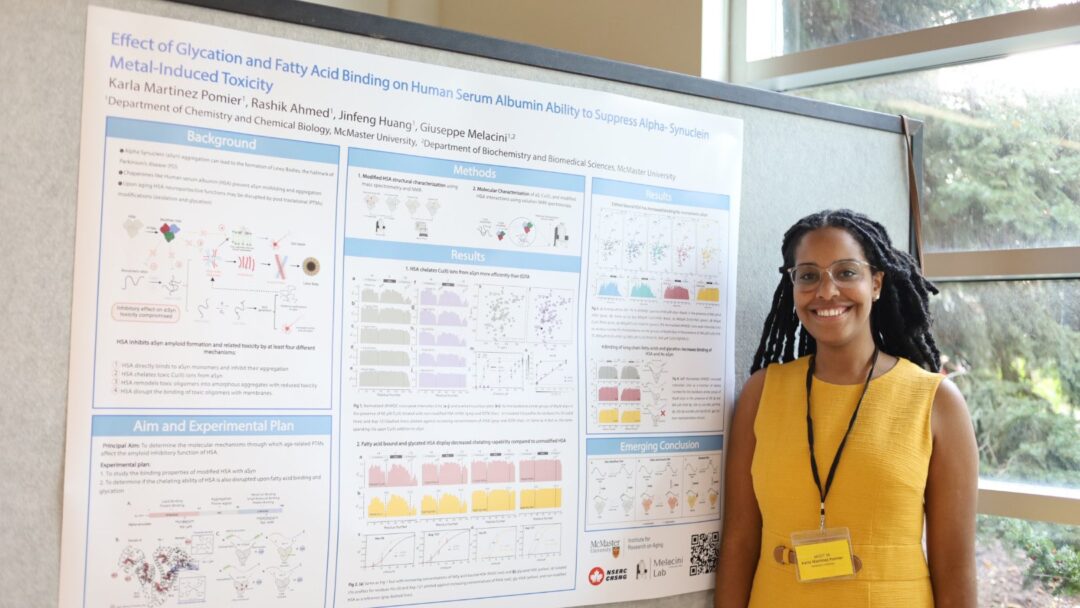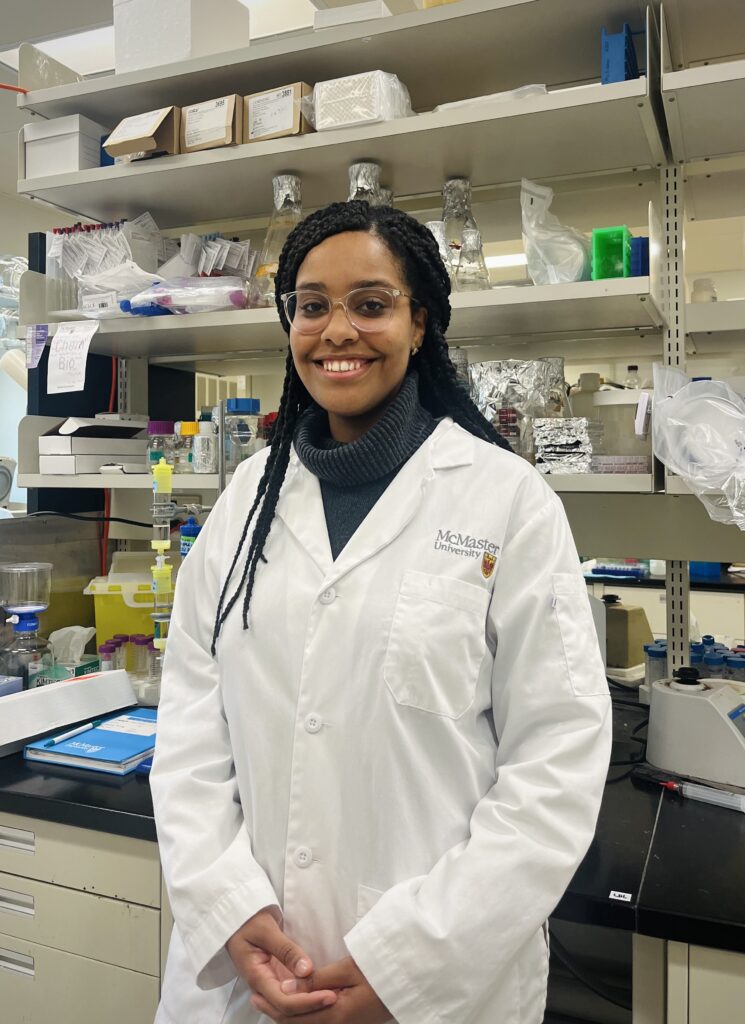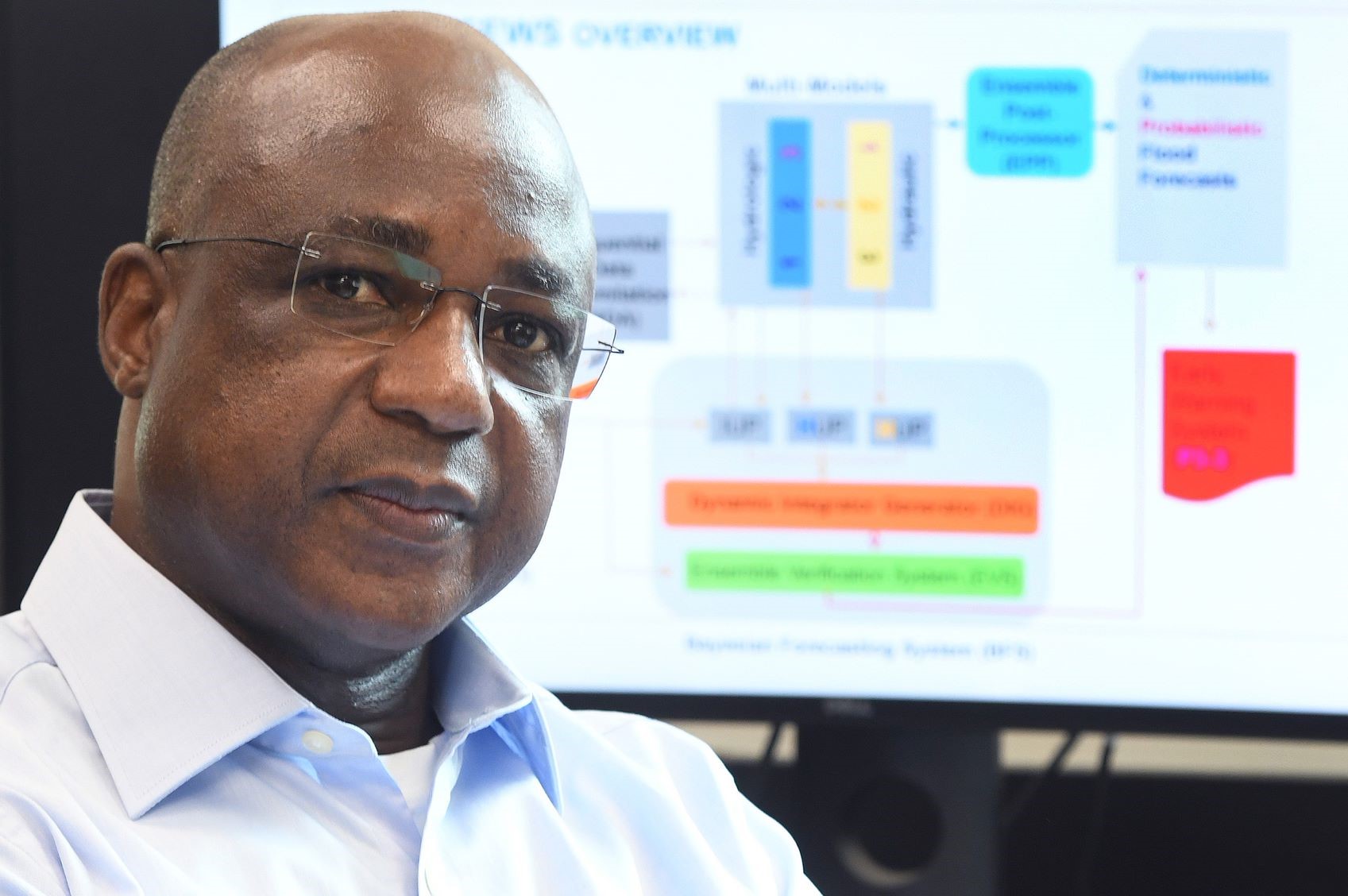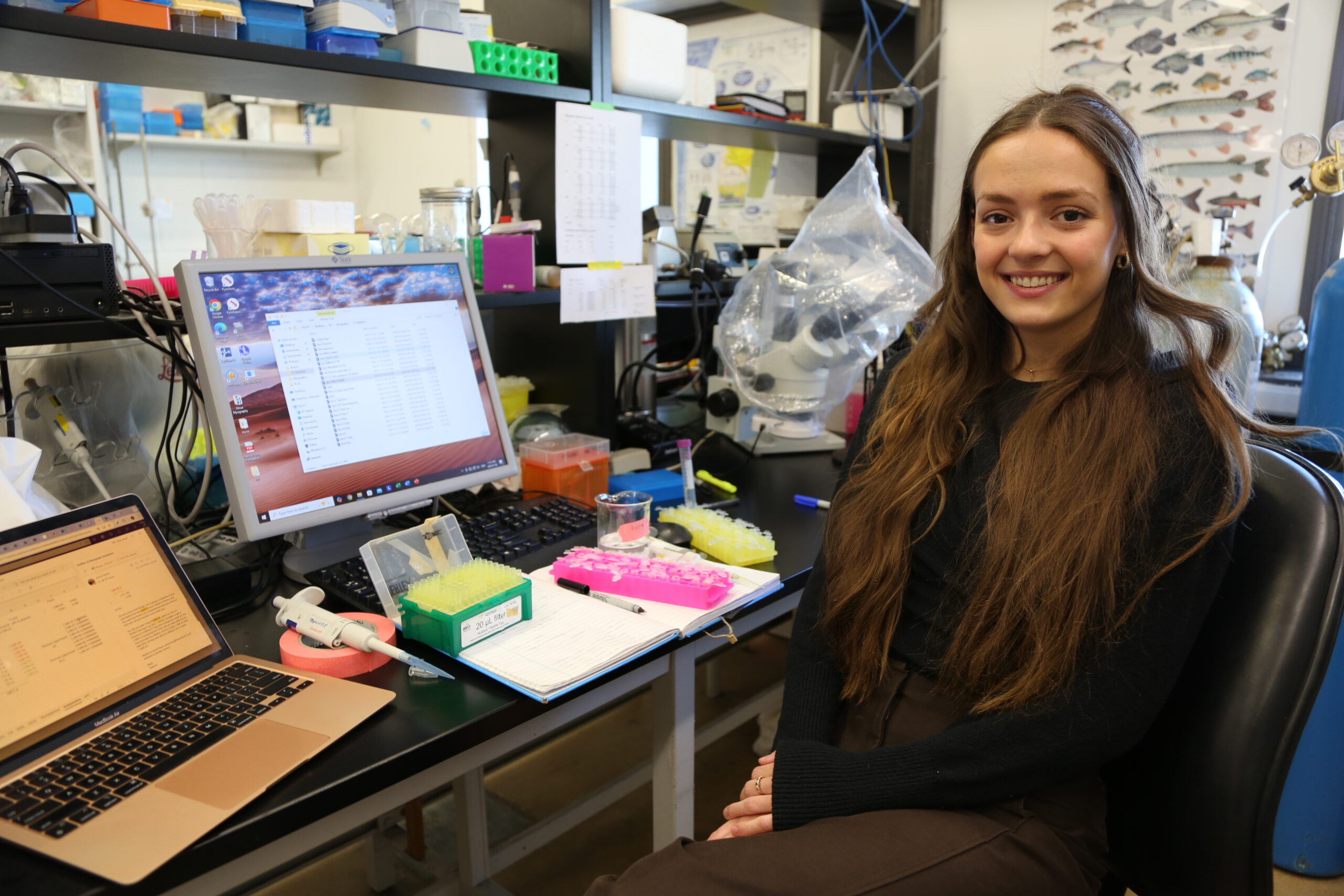Award-winning doctoral student finds a second family

Eight years before she was an award-winning doctoral student, Karla Martinez Pomier was far from home, bone cold and learning a second language.
Karla was 20 years old when she left Cuba halfway through a biochemistry degree at the University of Havana. She loved the country but couldn’t see much of a future if she stayed. “It’s hard to live a comfortable life there. And I knew I’d never earn enough money to travel and see the world.”
 So she transferred to Memorial University and moved in with her dad. He’d been a doctor in Cuba and was now working as a nurse in St. John’s.
So she transferred to Memorial University and moved in with her dad. He’d been a doctor in Cuba and was now working as a nurse in St. John’s.
The move to Canada was harder than expected. Her dad had given Karla a heads up about Canadian winters. But she underestimated just how cold it would get and how much snow would fall. “It was a drastic change. I can’t describe how cold I was.”
The bigger issue was the isolation. People pretty much hibernated through the long winter months. Hunkering down at home was doable if you already had lots of family and friends to call on. But Karla only had her dad. It was hard to meet new people and international students from Cuba were few and far between on campus and in the community. “In our culture, family’s involved in everything for better and sometimes for worse. I missed my mom, extended family and friends terribly.”
Karla had learned rudimentary English in her science-focused high school but not enough to follow along in lectures or hold her own during labs and tutorials. So before continuing her degree at Memorial University, Karla signed on for a six-month intensive where she spent all day every day learning to read, write and speak English. She became an avid reader.
She got off to a rocky start at Memorial. She eventually befriended a classmate who helped her make sense of the university’s unwritten rules. Karla graduated with honours in 2019.
Yet she was still in the dark when it came to graduate school. She’d waited too long to apply to U of T and UBC, assuming you could only apply after you’d completed your undergrad degree.
Karla floated the idea of taking a year off and traveling. Her dad and mom, who’s also a doctor, pushed back. “They’ve never been shy in telling me what not do to.” She could see the world later. Now was the time to finish her studies.
Her dad suggested McMaster because of Donna Strickland. A year earlier, the Mac alumnae had been awarded the Nobel Prize in Physics with Gérard Mourou.
The application window at McMaster was still open. Karla was accepted into the Chemical Biology program as a graduate student and joined professor Giuseppe Melacini’s research group.
She’d never been to McMaster or Hamilton before she arrived in the summer of 2019. Karla says she was pleasantly surprised. “I found a second family in Hamilton. I’m so happy with the friends I’ve made here.” She also dodged the January 2020 blizzard that dumped 76 centimetres of snow in one day on St. John’s and brought in the Canadian Armed Forces to help dig out residents after the record-setting storm.
Karla also felt like she’d found an extended family in Giuseppe’s research group. “It’s such a collegial, friendly and kind environment.” Karla settled into the lab and began researching molecular mechanisms that lead to age-related diseases like Alzheimer’s, Parkinson’s and cancer. Her work as a standout young researcher in nuclear magnetic resonance-based protein studies led to back-to-back-to-back awards with a McMaster Institute for Research in Aging PhD Scholarship in 2022, an NSERC Doctoral Canada Graduate Scholarship in 2023 and the James A. and Irene D. Morrison scholarship in 2024.
Giuseppe went from supervisor to mentor, providing Karla with invaluable advice about the scholarship application process. “I couldn’t have done it without Dr. Melacini’s guidance and support.”
Karla’s been the lead author on four research papers and contributed to six others. She’s presented at six conferences and volunteered as a chair and judge at a conference for undergrad chemistry students.
Outside of the lab, Karla works as a biochemistry teaching assistant and also helps international students find their way and feel at home. She can relate to feeling homesick and overwhelmed. Her best advice? “Find one person who can support you and knows what to expect. You’ll eventually figure it out.”
Karla says everyone – and not just international students – should at some point be a stranger in a strange land. “Challenge yourself and be uncomfortable. It’s a good experience. You’re forced to learn and adapt. Everyone should go through it.”
The Faculty of Science has recognized Karla’s excellence as a researcher, teacher and mentor by presenting her with the inaugural Graduate Student Black, Indigenous and Latin America / Latinx Award.
The recognition’s well deserved, says assistant professor Rodrigo Narro Pérez. They first met through the Latin American Network at McMaster University. Watching her connect with other Latin American grad students made an immediate and lasting impression. Rodrigo asked Karla if she’d speak at a Let’s Talk About Race event about her experiences as a Black Latin American student in the sciences. They’ve been friends ever since.
“What stands out for me is Karla’s determination, attitude and humility. She’s achieved all of the goals that she’s set for herself. I’m also impressed by her commitment to help make the Faculty of Science and McMaster an inclusive community. She’s so passionate about encouraging Black high school students to pursue STEM. You couldn’t ask for a better role model.”
So what’s next? Karla’s looking to work in the biochemistry industry where she can help find new treatments and cures. And take a well-deserved vacation to see more of the world. Preferably somewhere warm.
Awards, Graduate students, Research excellenceRelated News
News Listing

Research group receives federal climate change funding to help plan and design more resilient electricity systems
Faculty, Research excellence
January 28, 2025

Faculty of Science launches five research-focused credit courses for first and second-year students
Research excellence, Student experience, Students
January 23, 2025

Grad student’s debut oral presentation is an award-winner
Awards, Graduate students
January 13, 2025
